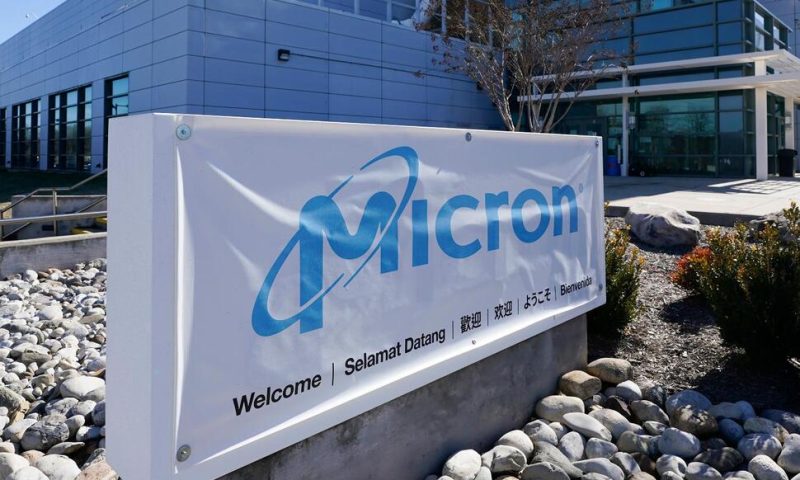Japan said it is providing a major U.S. chipmaker a subsidy of up to $322 million to back its plan to produce advanced memory chips at a Hiroshima factory.
TOKYO — Japan is providing a major U.S. chipmaker a subsidy of up to 46.6 billion yen ($322 million) to support its plan to produce advanced memory chips at a Hiroshima factory, the Japanese trade minister said Friday.
The announcement to subsidize Micron Technology comes on the heels of U.S. Vice President Kamala Harris’ visit in Japan as the two countries step up cooperation on expanding manufacturing and supply chains for critical materials.
“I hope the deal will contribute to further expansion of cooperation between Japan and the United States in the area of semiconductors,” Japan’s Economy and Trade Minister Yasutoshi Nishimura said.
He said the government approved the deal Friday under a law related to economic security.
Japan has set up its own fund to support semiconductor production, and Friday’s agreement is its third deal.
During her trip to Asia this week, Harris met with Japanese officials and semiconductor company executives to seek greater cooperation in strengthening semiconductor development and production amid China’s growing influence.
Micron was among the companies that participated in the meeting with Harris, along with Tokyo Electron, Nikon, Hitachi High-Tech Group, Fujitsu Ltd.
Micron said in a statement it will use the subsidy to strengthen production capacity and speed up development of the company’s 1-beta DRAM — memory chips that are key to advanced data facilities — as well as technology for a 5G network upgrade and artificial intelligence.
The United States is working to solidify its technology cooperation with Japan, South Korea and Taiwan, while trying to increase its domestic semiconductor manufacturing, amid China’s own investment in computer chips.
The deal Friday “symbolizes the investment and integration of our two economies and supply chains,” said U.S. Ambassador to Japan Rahm Emanuel, who has been promoting economic security between the two allies. “And that will only accelerate from here forward.”
Nishimura has stressed the U.S.-Japan alliance on semiconductors, energy and other areas.
Japan was once a world leader in computer chip manufacturing, but its status has eroded over the last two decades, and the country is increasingly worried about falling behind.
Japan has allocated 476 billion yen ($3.3 billion) in subsidies for a new factory in Japan’s southern prefecture of Kumamoto being built in a partnership between the Taiwan Semiconductor Manufacturing Co., Sony Group and Denso Corp.
Japan is also providing up to 92.9 billion yen ($644 million) to another facility in central Japan’s Mie prefecture jointly built by Western Digital Corp. and Kioxia Corp.

